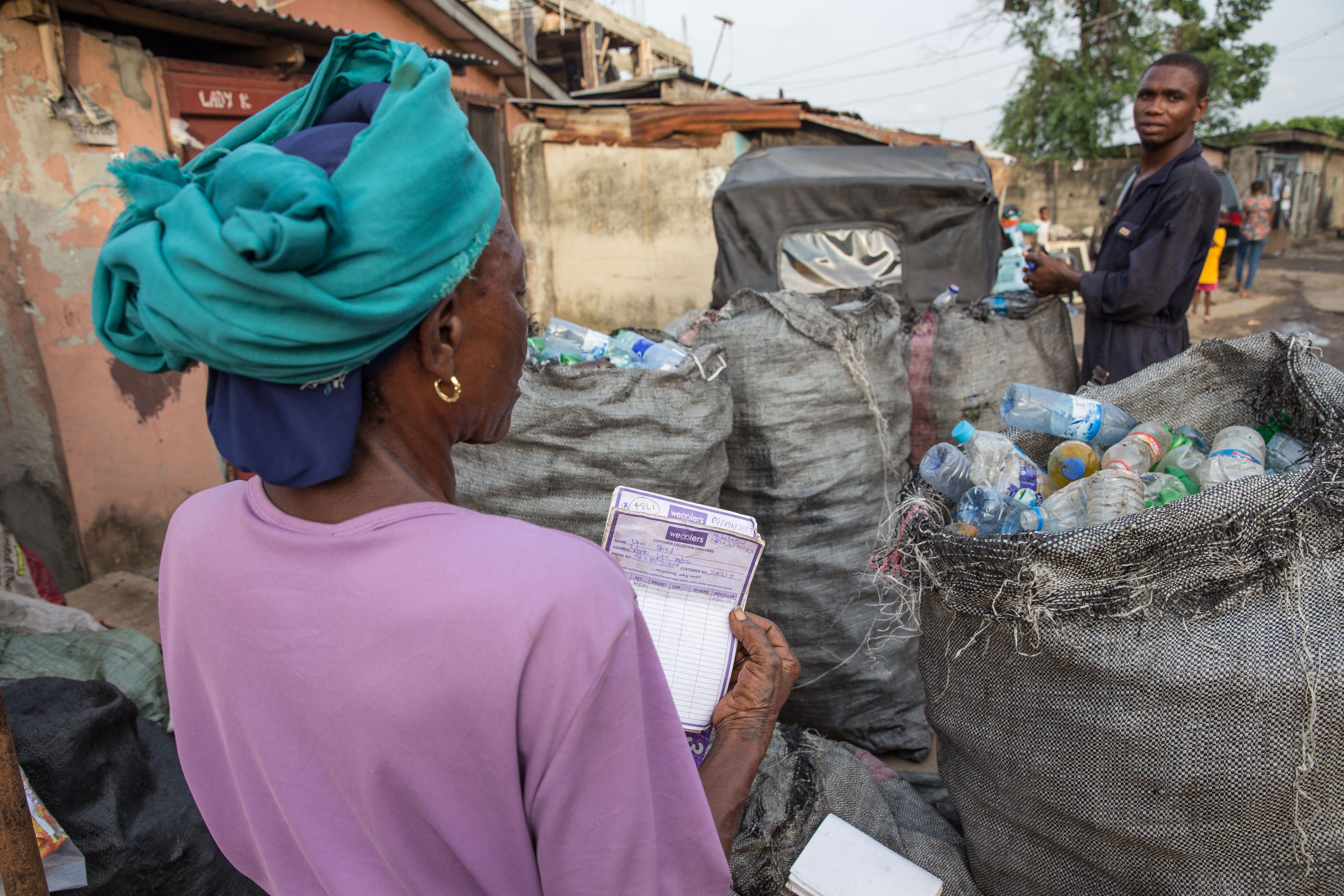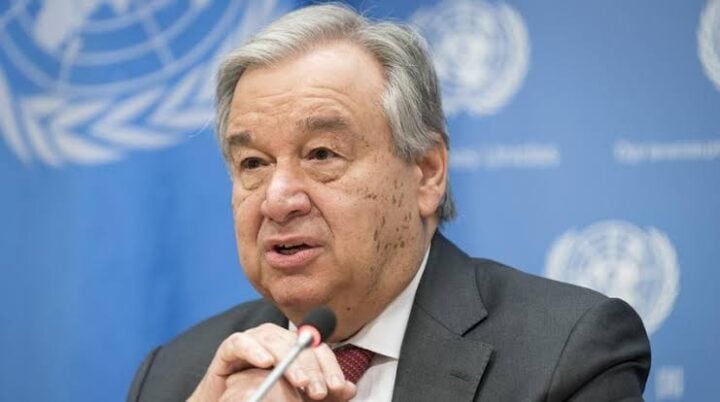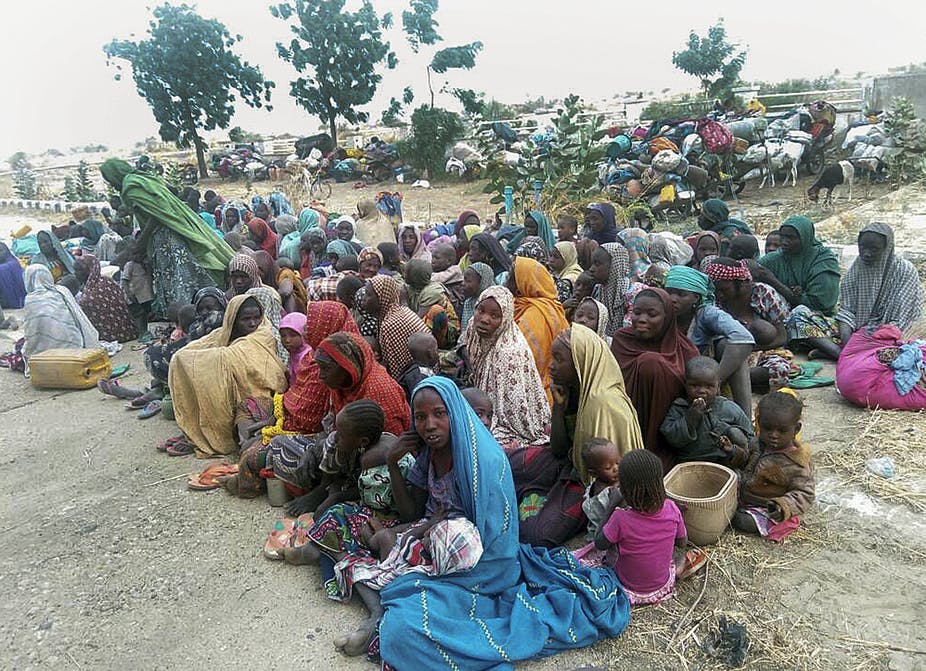WeCyclers subscriber Awawu Iyiola, 61, watches as a member of the recycling team weighs her bags of collected waste in Ebute Metta, Lagos, Nigeria on Thursday 14th March 2019.
Climate change directly affects our communities, health, and livelihoods. Yet, media coverage often prioritises politics and business over climate-related stories, leaving crucial environmental news underreported.
Climate Watch seeks to bridge this information gap, ensuring that important climate change stories and mitigation efforts stay on your radar.
Here is a round-up of last week’s climate stories:
- The National Council on Climate Change (NCCC), in partnership with the Stakeholder Democracy Network (SDN), has commenced the implementation of monitoring reporting verification (MRV) systems to mitigate emissions in Nigeria. Nkiruka Maduekwe, NCCC director-general, spoke in Abuja at a workshop on implementing MRV for short-lived climate pollutants (SLCPs) in key sectors. Maduekwe said Nigeria has identified three priority sectors for methane reduction: oil and gas, agriculture, and waste. She said the country will now focus on monitoring emissions, reporting them, and exploring verification methods. Read more here.
- The coalition of Niger Delta environmental advocacy groups has implored President Bola Tinubu to stop the proposed divestment by oil companies in the region. The group said the companies must clean up host communities before divesting their assets. The coalition also demanded the creation of an environmental restoration fund to address the long-term damage caused by the operations of oil companies in the Niger Delta. Read more here.
- The federal government is collaborating with the United Nations Industrial Development Organisation (UNIDO) to reduce carbon emissions in industries in the country. Oluyomi Banjo, national programme coordinator for environment and energy at UNIDO, sub-regional office for Nigeria and ECOWAS, spoke in Abuja at a phase two workshop for media stakeholders. Banjo noted that industries worldwide account for one-third of total energy consumption and nearly 40 percent of global carbon emissions. He said the project aims to equip industries with a skilled expert based in Nigeria, who could also be leveraged in other African countries and beyond. Find out more here.
- The United States has pledged a 61-66 percent emissions reduction by 2035. Debbie Weyl, US World Resources Institute (WRI) acting director, said in a statement that the commitment provides a clear path for climate action for the country in the next four years. Weyl noted that although the nationally determined contribution (NDC) is below the expectations of science, it is realistic enough if all parties play their roles effectively. Read more here.
- A report by the State of the Nigerian Environment (STONE) says about 179 million Nigerians live in unclean environments. The figure represents an improvement from the 183 million recorded in 2023. Speaking at the seventh edition of the report’s public presentation in Abuja, Ene Owoh, national coordinator of Clean-Up Nigeria (CUN), said Nigeria has made progress in reducing open defecation this year. Owoh said waste recycling efforts have declined, dropping from 26 percent in 2023 to 19 percent in 2024. He said the annual cleanliness performance index ranked Akwa Ibom and Abuja as the cleanest in Nigeria. Read more here.
Advertisement
Add a comment









